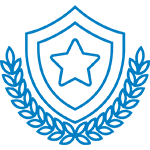
Announcing 2025 Winners
Learn more about the game-changing work being done to support children's mental health.
View Past Winners here




About the Program
This initiative invites U.S.-based 501(c)(3) public charities with an annual total revenue under $5 million to submit innovative ideas for advancing children’s mental health.
There are two award categories: the Innovation Awards ($100,000 each) which are open to all, and the Next Gen Innovation Awards ($25,000 - $50,000 each) which are open to nonprofits founded and/or led by leaders under 32 years old, with more than two years in operation.
Up to $550,000 in grants are provided and select applicants are invited to join the Leadership Learning Series. View FAQs for more information.
-
 Funding
FundingWinners receive seeding funding
-
 Recognition
RecognitionWinners raise their profile and showcase their program
-
 Networking
NetworkingWinners learn from peers and build powerful connections
-
 Learning
LearningSelect applicants receive expert-led leadership training
Morgan Stanley & Co. LLC and Morgan Stanley Smith Barney LLC (“Morgan Stanley”) are not implying an affiliation, sponsorship, endorsement with/of the third party or that any monitoring is being done by Morgan Stanley of any information contained within the website. Morgan Stanley is not responsible for the information contained on the third party website or the use of or inability to use such site. Nor do we guarantee their accuracy or completeness.
©2025 Morgan Stanley. All rights reserved. CRC 4398382 05/2025

